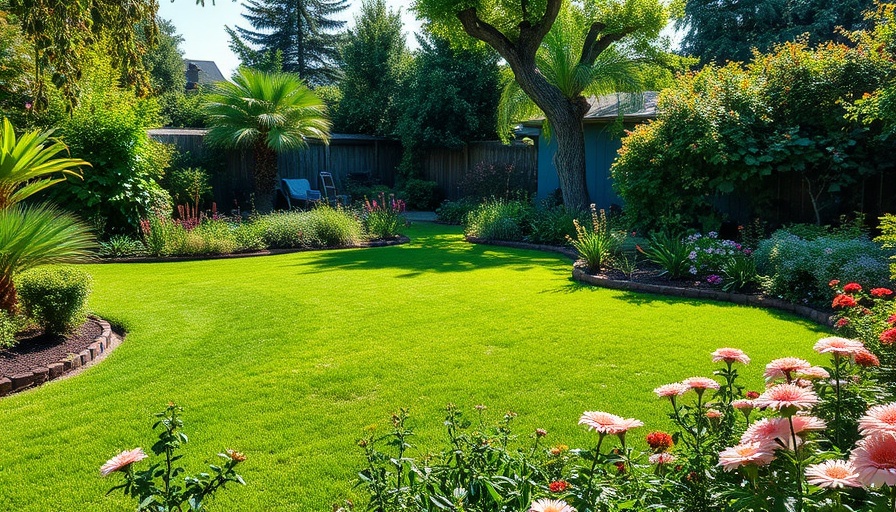
A Transformative Approach to Landscaping
Landscaping is not just about creating visually appealing outdoor spaces; it transforms the way we experience our environments. Thoughtful landscaping resonates with our need for relaxation and connection to nature, enhancing our properties' curb appeal and fostering community bonds. It goes beyond appearance, serving as a tool to improve function and contribute to a vibrant lifestyle. A well-planned landscape can provide habitat for wildlife while positively impacting a home’s overall value.
Guiding Principles in Landscape Design
Successful landscaping is rooted in an understanding of natural environments. Homeowners can benefit from knowledge about their landscapes' unique qualities, such as soil type and local climate, to select plants and designs that thrive. Essential design considerations include visual balance and effective use of space, allowing for distinct areas within a cohesive look. By incorporating practical components like shaded seating and path guidance, designers ensure the landscape serves its occupants' needs. Many homeowners opt for local landscaping services that deeply understand regional characteristics, particularly in regions like Westchester.
Sustainability: Where Ecology Meets Aesthetics
The modern approach to landscaping emphasizes sustainable practices that enhance environmental responsibility. Homeowners are increasingly choosing native and drought-resistant plants to conserve water and reduce maintenance. Implementing features that capture rainwater, using permeable materials, and composting enrich soil while supporting local ecosystems. Even small decisions, such as installing solar-powered lights and selecting organic materials, contribute significantly to sustainability. With the growing trend toward eco-friendly landscaping, it's clear that beauty and ecological health can coexist harmoniously.
Fostering Community and Connection Through Landscapes
Beautifully designed outdoor spaces cultivate connections—both with nature and among community members. Thoughtful landscaping can transform empty lots into communal gardens, inviting neighbors to collaborate and engage in shared experiences. Such spaces encourage outdoor gatherings, promote biodiversity, and allow us to enjoy the simple pleasures of nature. Landscaping thus becomes a vehicle for social interaction, providing places where stories and friendships blossom.
Conclusion: Embrace the Power of Landscape Design
Incorporating landscaping into our lives goes beyond beautification; it enriches our living environments in meaningful ways. Whether enhancing your home’s aesthetics or creating communal spaces, the right approach to landscaping can profoundly impact our health, well-being, and connection to nature. As these practices become more mainstream, they advocate for a lifestyle that values both personal enjoyment and ecological sustainability.
 Add Row
Add Row  Add
Add 



 Add Row
Add Row  Add
Add 


Write A Comment